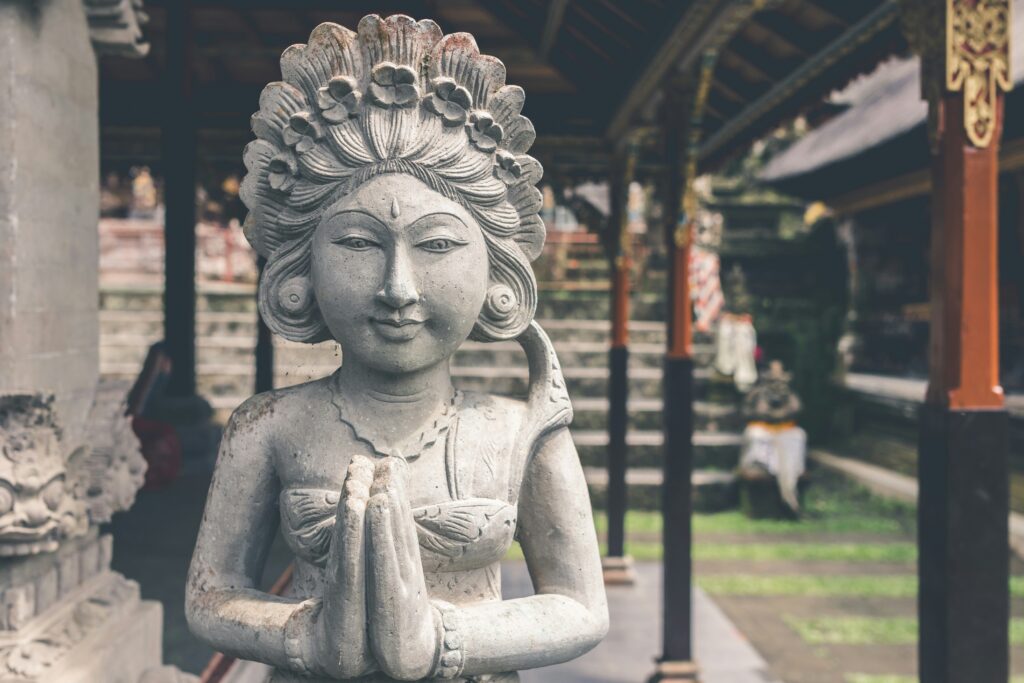Being an Asian-American or Pacific Islander (AAPI) in America presents challenges unique to our community, including the silence and stigma around mental health needs in our culture. Deep-rooted stigma around mental health needs can create a daunting barrier to seeking help and support. As someone who has lived in both the East and the West, I want to open an important topic of conversation. Let’s break the silence around mental health stigma in AAPI communities.
I remember when I started college in the United States. Moving from Malaysia to the US meant I had to adjust to living in a new country with different values and beliefs. I also had to establish a new community, including friendships and other supports, and learn to live independently. I felt overwhelmed, stressed, and homesick. Part of me wanted to ask for help – to go see a therapist where I could gain new insights and process my feelings while navigating this new phase of life. But the messages I received from my home culture stigmatizing mental health care, however, were deeply ingrained in my mind.
I’d been taught that admitting to mental health struggles and seeing a therapist was a sign of weakness. Choosing to seek help despite these messages playing in my mind was a huge step. And, one that took a lot of bravery for me. I am so glad to say that that huge, brave step was truly worth taking. The first step toward dismantling barriers to care is to break the silence surrounding them. In this post, we will delve into this complex issue and explore different strategies to breaking down the barriers to mental health care while cultivating a culture of understanding, openness, and healing.
Understanding the Stigma
The silence around mental health care is fed by stigma rooted in history, intergenerational dynamics, and cultural norms. Historically, mental illness has been misunderstood and stigmatized across many cultures, especially those within the AAPI diaspora. Within AAPI communities, there is often a strong emphasis on maintaining harmony, upholding family honor, and saving face. This emphasis on appearances creates pressure to suppress our struggles with mental health to maintain an appearance of stability and strength, regardless of the personal cost.
Cultural expectations of filial piety, which is the obligation to prioritize the expectations and needs of one’s family, also contribute to the stigma regarding mental health. Individuals may fear burdening their families with their emotional struggles. We may worry about bringing embarrassment or shame to their loved ones. As a result, many of us internalize feelings of guilt, shame, and inadequacy and struggle in silence.
AAPI individuals may also feel an obligation to protect the image of their community and culture in the eyes of Western society. They may also fear that embracing mental health care means they are abandoning their culture in favor of competing Western values. Being torn between different sets of values, norms, and expectations adds another layer to the challenges of navigating cross-cultural living.

Challenging the Narrative
Given the challenges in addressing mental health concerns in the AAPI community, you might be wondering how we can change this dynamic. Challenging mental health stigma in AAPI communities requires a combined effort to slowly dismantle the deeply ingrained attitudes and beliefs. We can work together to break the silence around mental health concerns. Talking about mental health helps to normalize seeking help and support when we struggle. Let’s look now at some specific strategies we can begin to implement to create small changes.
Break the silence
One powerful strategy to challenge existing narratives and beliefs involves storytelling. By sharing personal narratives of resilience and recovery, we can relate to shared experiences of mental health struggles. At the same time, sharing our story helps challenge misconceptions about mental health care. These stories can remind us that mental health issues can affect anyone, regardless of outward appearance or cultural background. And, they remind us seeking help is not a sign of weakness, but rather a courageous act of self-care.
Build Support Networks
Community support can play an important role in addressing mental health stigma within AAPI communities. Peer support groups, grassroots organizations, and cultural initiatives provide spaces for AAPI to connect with others who share our experiences and challenges. These networks offer a sense of belonging and solidarity, which can reduce feelings of shame and isolation. By fostering community support, we can create an environment where individuals are empowered to seek help and support one another.
Embrace Self-Care
Learning to value self-care is important for mental wellness, especially in cultures where prioritizing one’s own needs is considered selfish. We can incorporate many self-care practices into daily life such as meditation, mindfulness, physical activity, and creative expression. Caring for our mental and emotional needs can help us regulate emotions, reduce stress, and promote overall well-being. Remember, self-care is not about being selfish. Rather, it is an important aspect of maintaining resilience, especially in the face of societal pressures and cultural stigma.
Seek Professional Help
While community support and self-care practices are valuable resources, professional help will sometimes be necessary. For more complex mental health issues, there are licensed therapists and social workers with lived experience and/or training in culturally sensitive care. These clinicians can provide personalized support that takes into account the unique cultural experiences and backgrounds of AAPI clients. A therapy office can be a safe, supportive place for you to explore your feelings, thoughts and experiences. We can show our community that seeking help and healing is not a sign of weakness, but rather an act of courage.
Breaking down the stigma surrounding mental health in AAPI communities will require a multifaceted approach. Storytelling, education about the importance of self-care, increasing community support, and accessing professional help are all part of the work. By fostering open dialogue and prioritizing culturally sensitive care, we can create a more supportive and inclusive environment. One where AAPI can feel empowered to seek help and support one another in their mental health journeys. Together, we can overcome stigma and build a future where mental health is valued and prioritized within AAPI communities.
Felicity Fong







